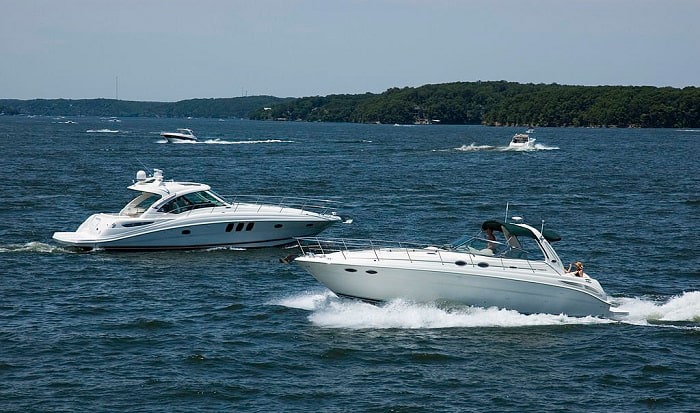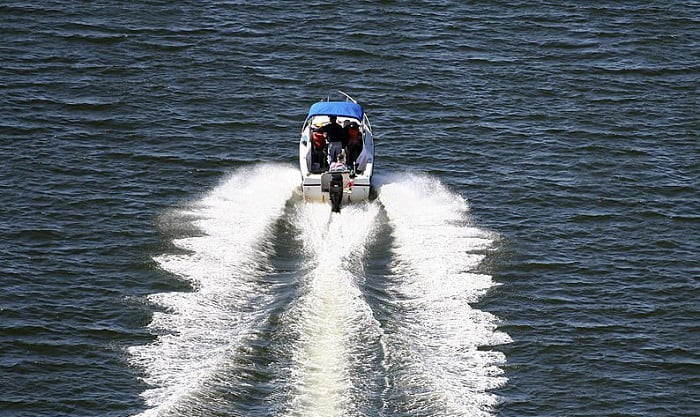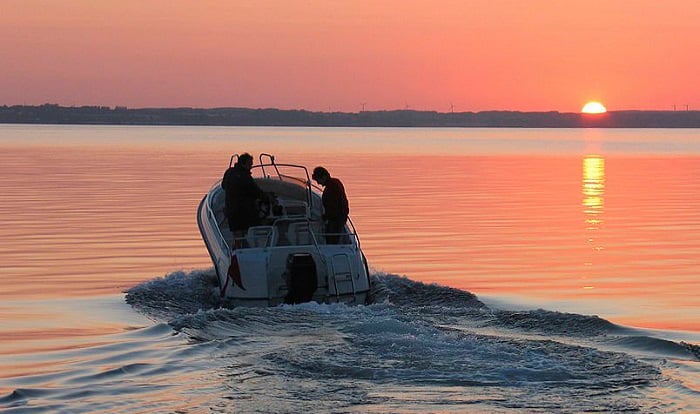There are many things we need to know when boating. But when operating a boat near other boats or when entering a congested area, why should you watch your wake?
The reason is obvious, a boat’s wake can affect other people, other vessels, and even the surrounding environment; possibly resulting in injury or property damage. Let’s learn more about how your wake can affect others and how to deal with it from the giving and the receiving end.
Read on to learn more.
Watch Out for a Boat’s Wake
Wake refers to the flow of water produced by a moving vessel, much of which is left behind the boat and moves sideward. Another thing to look out for is “wash” which is produced along with the wake of a watercraft. This refers to the splash of water that may get thrown around by a propeller.
But when operating a boat near other boats or when entering a congested area why should you be mindful of the wake you produce? As for wash, it can impair other people’s vision but may just be more of a nuisance. With wake, however, things can get more serious.
Problems with wake
- It can displace boats, people, and objects
Boat wake can affect anything in the surrounding waters, even bigger vessels. This can result in people or things getting thrown overboard because of the resulting collision of force.
Getting thrown overboard is among the cause of most fatal boating accidents accounting for around 10% of recorded fatalities making this a severe matter that needs every boater’s utmost attention.
Even a smaller wake can be a problem, and many people underestimate their ability to produce it. It is very important to properly observe rules for a boat operating in a narrow channel and no-wake zones. Complying with these safety guidelines helps keep everyone safe.
Swimmers and small watercraft are especially vulnerable to wake, and it is urged that boaters slow down while passing recreational fishing boats and designated swimming areas. A congested waterway means you will affect more people at the same time so be careful to avoid trouble.
- Damaging to the environment
Certain areas are sensitive to wake and may be affected by frequent exposure to them. These include certain natural habitats and even areas on or near the water, such as the shoreline. This also applies to structures near the water, such as docks and bridges.
Some places may implement more than a simple no-wake zone, imposing distance regulations. It is best to abide by these rules, so try to familiarize yourself with local boating regulations. If you are unsure about the rules governing an area, tread carefully instead.
Managing wake
This is something that boaters need to deal with both ways. On the one hand, you need to be mindful of how you can affect others. On the other hand, you also need to know how to cope with what other people end up throwing your way.
As far as managing your wake is concerned, getting completely off plane is the first important step to take; however, this may not be enough.
Make sure to consider the level of your bow. A boat with a raised bow may still produce a wake large enough to pose a threat to others, so keep it leveled to be safe.
When it comes to dealing with other people’s wake, it is important to know how to position your vessel as you receive it properly.
Slow down as early as you can and turn toward it. It is much better to take it straight instead of anywhere else but turn a few degrees to one side before crossing.
What Not to Do
Slowing down is not enough and minding the bow’s level is the best way to tell if you are in a position to produce wake. Be mindful of the distribution of weight on your vessel, and do not neglect to keep tabs on the vessel’s weight.
An overloaded boat will have a hard time managing wake which makes it more difficult to operate as well.
When receiving others’ wake, stopping is one thing you should never do. Any watercraft will be more stable moving compared to when it is still. If your vessel is at a stop, it will end up taking the brunt of the impact.
Conclusion
When operating a boat near other boats or when entering a congested area, why should you watch your wake? Now you know what dangers it poses and how to deal with it.
This is a very important safety concern, so do what you can to follow the rules and spread the word. So, feel free to share the information with others.
Remember to boat safely.

“My intention from the first day establishing Boating Basics Online is to provide as much help as possible for boaters who want to experience a first safe and convenient trip. So feel free to join us and share your beautiful journeys to the sea!”



